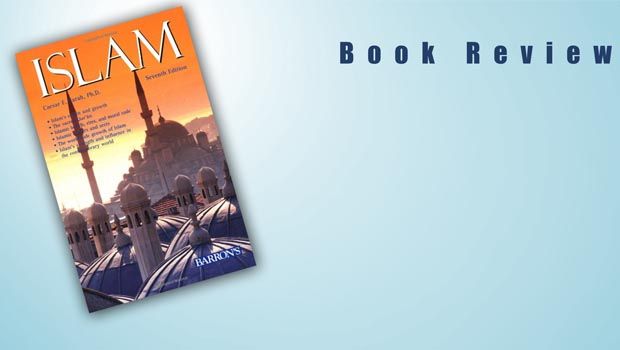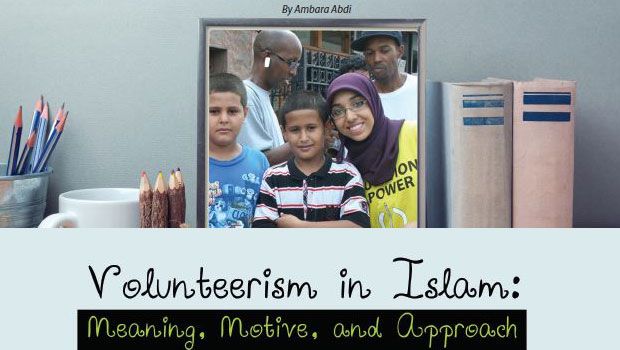Reform, in Arabic, islah, does not specifically appear in the list of maqasid (objectives of Shariah) in the writings of early scholars. The possible reason for this is that early scholars mostly linked the objectives of Shariah with the hudud (fixed prescribed penalties), and therefore they developed a list of five objectives of Shariah, namely the preservation of religion, life, intellect, lineage and property. While the majority of scholars incline to confine the higher objectives of Shariah to these five, other scholars, mostly contemporary ones, add other significant goals such as justice and freedom to the list of the maqasid .
The Wikileaks releases, which began in 2010, have demonstrated with evidence from “ inside sources” that the world is overwhelmed with injustice, oppression, corruption, duplicity, hypocrisy, and disorder. Some analysts consider the Wikileaks revelations a turning point in the history of humanity as they have provided an unprecedented number of official and confidential documents that show the extreme need of true reform and genuine change on a worldwide basis. Reform, in all aspects of life, is being proposed by faithful people of the world as the sole workable solution to the world’s current disastrous and miserable situation.
Reform, an objective of Shariah, engenders means for the improvement and betterment of the human condition in all its facets
Allah’s decree and immutable sunnah (way) is that He doesn’t change or facilitate the reform of people’s affairs until they themselves change for the better. The Quran unequivocally says, “Surely, Allah does not change the condition of people until they themselves change (themselves and their affairs)” (Al-Quran, 13:11). Reform, therefore, requires collective faith-based efforts of scholars, intellectuals, activists, and all people of the world community. In this article I will examine the concept of reform as an objective of Shariah, its implications in all aspects of life, and its means and approaches.
Reform: A Well-Established Shariah Objective
As mentioned above, the early list of five objectives of Shariah does not specifically include reform, as it is based on a reading of the relevant hudud that Shariah prescribes to protect individuals and societies. Imam al-Ghazali (d. 505 AH), for instance, specifies the five objectives of Shariah: “Maslahah [public interest, benefit, welfare], which we are concerned about here, means the protection of the objectives of shar, namely the preservation of religion, life, offspring, reason, and property. Anything that furthers these five objectives is maslahah, and anything that runs contrary to them is mafsadah [harm, corruption].” Some scholars, mostly contemporary ones, have widened the scope of the five objectives of Shariah to include other essential objectives. The Maliki jurist, Shihab ad-Din al-Qarafi (d. 684 AH) has added a sixth, namely the protection of ird (honor). Ibn Taymiyyah (d. 728 AH) was probably the first scholar to depart from the notion of confining the maqasid to a specific number.
Ibn Ashur (d. 1973) expanded the scope of the maqasid to include the preservation of the social order, promotion of the well-being and righteousness (salah) of the community, and preservation of the family. The renowned contemporary scholar Yusuf Al-Qaradawi has added human dignity, freedom, social welfare, and human fraternity to the list of higher maqasid of the Shariah. All these objectives are undoubtedly upheld by the weight of both general and detailed evidence in the Quran and Sunnah.
In fact, one finds that reform with the aim of establishing righteousness constitutes a basic objective of Islam. Prophet Muhammad (peace be on him) and all Prophets of Allah were delegated with the mission to reform and change people’s affairs for the better. For instance, in the Quran, Prophet Shuayb says to his people, the Madyan, “I desire no more than to set things to what is right (islah—reform, betterment) in so far as it lies within my power; but the achievement of my aim depends on Allah alone” (Al-Quran 11:88). This verse clearly indicates that Allah Almighty ordained Prophet Shuayb (peace be on him) to reform people’s affairs, change their situation for the better, and set things right inasmuch as it was within his capacity. Also, the Quran narrates that Prophet Musa (peace be on him) said to his brother Harun, “Take my place among my people; and act righteously (aslih), and do not follow the path of the spreaders of corruption” (Al-Quran, 7:142). Prophet Musa is asking his brother Harun to lead and guide his people—in his absence—to islah, and to safeguard them from any corrupting influences.
Reform is further established by the Sunnah as a collective duty of all members of the world community. Good and righteous people should not ignore or be complacent about those amongst them who deal in misguided, corrupt, or immoral ways as this leads the world to conflict and misery. Prophet Muhammad (peace be on him) said, “There are people who do not transgress the limits (laws) of Allah, and there are others who do so. They are like two groups who boarded a ship; one of them settled on the upper deck, and the other on the lower deck of the ship. When the people of the lower deck needed water, they said: ‘Why should we cause trouble to the people of upper deck when we can easily have plenty of water by making a hole in our deck.’ Now if the people of upper deck do not prevent this group from such foolishness, all of them will perish, but if they stop them then they will be saved.” (Al-Bukhari) This hadith conveys the importance of working to reform society so that the prevailing wrong and harm do not cause everyone to go down with the sinking ship.
The above-mentioned texts, along with a countless number of general and detailed proofs of Shariah, affirm that the overall objective of Shari`ah is to set things right (salah) and remove corruption (fasad) from human activity. Ibn Ashur, in Maqasid al-Shariah, affirms that islah and salah are the overall objectives of Shari`ah. He states, “From a comprehensive thematic analysis (istiqra) of the textual sources of the Shariah pertaining to the objectives of legislation, we can draw the following conclusions: Both its general rules and specific proofs indicate that the all-purpose principle (maqsad amm) of Islamic legislation is to preserve the social order of the community and insure its healthy progress by promoting the well-being and righteousness (salah) of that which prevails in it, namely, the human species. The well-being and virtue of human beings consist of the soundness of their intellect, the righteousness of their deeds as well as the goodness of the things of the world where they live that are put at their disposal.”
Reform: All-Embracing Concept
In Islam, reform is not confined to faith or devotional matters alone. Rather, it is an all-embracing concept that covers all aspects of life, including devotional, social, economic, political, and educational activities. Islam, the religion of balance and moderation, considers man’s spiritual and material well-being, his worldly success as well as his spiritual growth and development. Therefore, reform, an objective of Shariah, engenders means for the improvement and betterment of the human condition in all its facets so that people may reach their optimal condition upon this earth and in the hereafter.
Confirming the comprehensive nature of reform in Islam, Ibn Ashur says, “We should realize that the righteousness [islah] intended and praised by the Lawgiver is not confined to righteousness of belief and acts of ritual worship, as some people might wrongly believe. Rather, what is meant by righteousness is setting things right in people’s worldly conditions and social affairs, as indicated by the following verse: ‘But whenever he prevails, he goes about the earth, spreading corruption and destroying [people’s] tilth and progeny: and God does not love corruption’ (2: 205). Indeed, this verse clearly indicates that what is meant by the corruption warned against here is that affecting worldly matters and conditions. It equally indicates that it should not be understood that the One Who created this world and instituted in it the laws of its preservation and existence did so in mere idle play. Hence, Allah says, ‘Did you, then, think that We created you in mere idle play, and that you would not have to return to Us?’ (23:115).”
If Allah had not intended the orderly running of the world, He would not have ordained punitive laws to deter people from perpetrating corruption nor permitted them to enjoy the beautiful and good things of life (as long as that is done within proper boundaries). For example, He has ordained just retribution for murder and other criminal acts; and He has decreed the intimacy of a man and woman as lawful and good within the bounds of marriage.
In order to set people’s dealings with one another right, the Shariah has established a system of rights and entitlements (nizm al-haqq) that is certainly meant to remove the corruption that manifests when man is left to live without guidance. This is explicitly mentioned in the following verse: “But if the truth were in accord with their own likes and dislikes, the heavens and the earth would surely have fallen into ruin, and all that lives in them [would long ago have perished]” (Al-Quran, 23:71). Accordingly, we find that Islam has dealt with setting right the condition of humankind by tackling the affairs of both the individual and the community. It starts its call by reforming matters pertaining to faith and belief, for only correct belief can constitute the foundation of sound thinking and reasoning. This, in turn, leads the individual to discernment in his or her reflection on the affairs of the world.
Muslim scholars inspire and facilitate reform within the Muslim communities, and exemplify cooperation with all people of all religions, nations, and creeds
Islam then addresses itself to purifying the human psyche and uplifting the human soul since it is the inner sense of, and yearning for, goodness that motivates one to righteous deeds, as indicated in the Prophet’s saying: “Beware! There is in the body a piece of flesh (mudghah) — if it becomes good (reformed), the whole body becomes good, but if it is spoilt, the whole body is spoilt, and that is the heart” (Bukhari). And finally, Islam concerns itself with reforming human deeds by instituting detailed legislation for the various aspects of human activities.
It is important to note that true reform is as comprehensive and all-embracing as the Shariah itself. It is not acceptable, therefore, to focus on reforming some aspects of life while neglecting others. Striving for comprehensive reform is the only approach that can bring balance and order to our complex and often misguided world.
Gradualism and Reform
In addition to comprehensiveness in the approach to reform, it is also important to recognize that sudden, drastic reform is not workable and will mostly fail. Prophet Muhammad (peace be on him), the ideal model for reformers, gradually, with utmost patience and perseverance (sabr), brought change to the people of his time. He (peace be on him) was able to inspire and facilitate the personal and social changes that led from corruption and misery to righteousness and well-being; from polytheism to true faith in One God; from ignorance to the light of knowledge; from pervasive social injustice to goodness, compassion, and benevolence.
Moreover, Ibn Ashur stresses the necessity of a gradual and resolute approach in reform, saying, “Human beings have a natural propensity for perfection. However their actual achievement of perfection develops only gradually in tandem with their spiritual purification and moral uplifting. Indeed, we have in the gradual development of Islamic legislation from the beginning of the Prophet’s call to the post-Hijrah period a sufficient guide concerning the strategy of the Shariah for achieving its desired reform (islah). In fact, all that we have already discussed has been expressed by the Tradition reported by Muslim on the authority of Abu Amrah al-Thaqafi, who said: I asked: ‘O Messenger of God, tell me about Islam something which might remove from me the necessity of my asking anybody after you.’ He [the Prophet] said: ‘Say: I affirm my faith in God, and then remain steadfast to it.’” A gradual and resolute approach to reform is, therefore, the right course that has proved to be workable and successful.
Scholars in the Forefront Reform
Scholars, religious leaders, community activists, and all right-minded individuals should exert their utmost efforts to move their communities to true reform and a genuine change for the betterment of all people. In the past, Allah Almighty sent prophets and messengers to facilitate reform and help bring positive change to people’s affairs. Prophet Muhammad (peace be on him) was sent by Allah with a universal message for all. He (peace be on him) is the seal of Prophets whom Allah sent to reform life upon this earth. Scholars, particularly, have inherited this mission from the Prophets by virtue of their knowledge and commitment to righteousness as the foundation of their own lives and the life of the community. They, therefore, have a vital role to play in the process of reform. Prophet Muhammad (peace be on him) unequivocally declared, “Scholars are the heirs of the Prophets” (Abu Dawud). Imam Ash-Shatibi (d. 790 AH) outlines the crucial position of scholars in the ummah (Muslim community) saying, “The position of the mufti [or the scholar who issues fatwas and leads people to righteousness] among people is like that of the Prophet (peace be on him) among the people.”
Our Muslim scholars can inspire and facilitate reform within the Muslim communities, and exemplify cooperation with all people — of all religions, nations, and creeds — who strive for a good, fair, and compassionate world community. This is the only way that we might begin to bring enduring change to the current adverse and destructive conditions of the world today. Our righteous predecessors have done their part, we yearn for such betterment in our own day, and most importantly, our children and grandchildren deserve a just and compassionate world. We must never lose hope that, with cooperation, tolerance, and understanding, we can bring about the reforms so profoundly needed by the peoples of the world.






